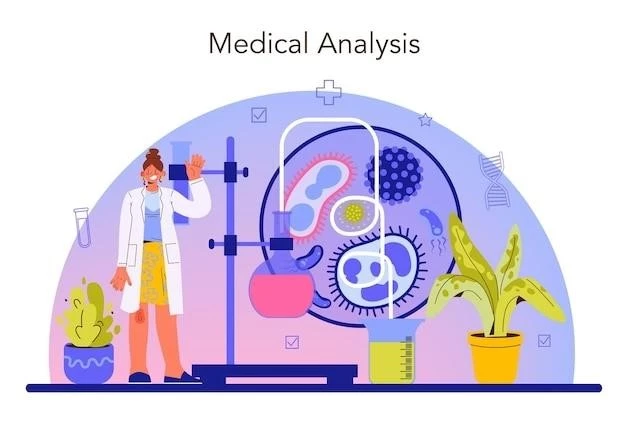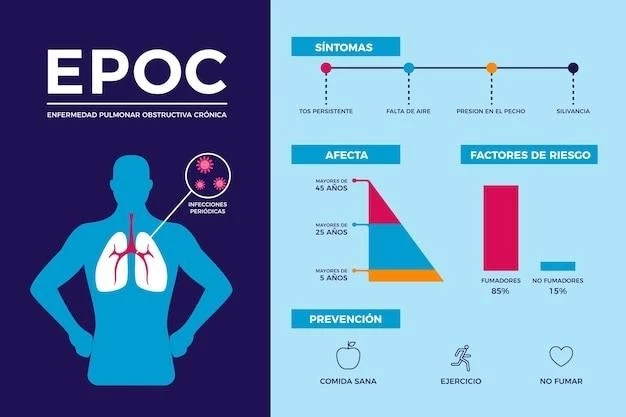Explore the causes‚ treatment options‚ coping strategies‚ and other crucial aspects of anosmia.
Definition of Anosmia
Anosmia refers to the partial or complete loss of the sense of smell. This condition can be temporary or permanent‚ impacting an individual’s quality of life and ability to detect odors. Anosmia can result from various causes‚ including nasal or sinus issues‚ head injuries‚ viral infections‚ or neurological disorders.
Common Causes of Anosmia
Common causes of anosmia include nasal polyps‚ sinus infections‚ head trauma‚ aging‚ smoking‚ neurological conditions‚ and exposure to certain chemicals. Other factors such as viral infections like the common cold or influenza‚ allergic rhinitis‚ and hormonal imbalances can also contribute to the development of anosmia.
Treatment Options for Anosmia
Learn about various medical treatments and surgical interventions available to address anosmia.
Medical Treatments
Medical treatments for anosmia may include corticosteroids‚ nasal saline irrigations‚ antihistamines‚ or nasal decongestants. In some cases‚ antibiotics are prescribed to treat underlying infections contributing to the loss of smell. Olfactory training‚ which involves exposure to various scents‚ is also a common approach to help improve olfactory function.
Surgical Interventions
Surgical interventions for anosmia may involve procedures to correct structural issues in the nasal passages or sinuses‚ such as nasal polypectomy‚ septoplasty‚ or sinus surgery. These surgeries aim to restore proper airflow and function to the olfactory system‚ potentially improving the sense of smell in individuals with anosmia.
Anosmia and COVID-19
Explore the relationship between anosmia and COVID-19‚ a key symptom of the viral infection.
Relationship between Anosmia and COVID-19
COVID-19 has been associated with anosmia‚ where individuals infected with the virus experience a sudden loss of smell. Anosmia‚ along with loss of taste (ageusia)‚ can be early indicators of a COVID-19 infection. Monitoring and reporting anosmia symptoms are crucial for prompt identification and isolation of potential COVID-19 cases.
Coping with Anosmia
Discover effective strategies to cope with the challenges of living with anosmia.
Psychological Impact of Anosmia
Anosmia can have a profound effect on an individual’s quality of life‚ leading to feelings of frustration‚ social isolation‚ and altered eating habits. Coping with the loss of smell may require psychological support to navigate emotional challenges and develop strategies to adapt to changes in sensory perception.
Anosmia in Children
Explore the unique causes and considerations of anosmia in pediatric populations.
Causes of Anosmia in Children
Anosmia in children can be caused by congenital factors‚ viral infections‚ nasal obstructions like adenoid hypertrophy‚ head trauma‚ genetic disorders‚ or neurological conditions. Identifying the underlying cause of anosmia in children is crucial for appropriate management and potential treatment to improve their sense of smell.
Anosmia⁚ When to See a Doctor
Learn when it is essential to seek medical attention for symptoms related to anosmia.
Recognizing Signs that Warrant Medical Attention
If you experience sudden or persistent anosmia‚ especially following head trauma‚ nasal surgery‚ or viral illness like COVID-19‚ it is crucial to seek prompt medical evaluation. Other concerning symptoms include nasal congestion‚ frequent headaches‚ or changes in taste perception. Early assessment and intervention can help identify underlying causes and facilitate appropriate treatment.
Home Remedies for Anosmia
Discover natural and home-based approaches to manage symptoms associated with anosmia.
Aromatherapy and Essential Oils
Aromatherapy and essential oils are commonly used to stimulate the olfactory system in individuals with anosmia. Certain scents like eucalyptus‚ peppermint‚ or lemon may help improve smell perception. However‚ it is essential to consult with a healthcare provider before using essential oils to ensure safety and efficacy in managing anosmia.

Anosmia and Loss of Taste
Understand the correlation between anosmia and the loss of taste‚ known as ageusia.
Relationship between Anosmia and Loss of Taste
Anosmia and loss of taste often coexist due to their close connection in the sensory system. When the sense of smell is diminished‚ it can impact the perception of flavors and lead to a diminished taste experience. Understanding the interplay between anosmia and ageusia is essential for comprehensive management and treatment of these sensory disorders.
